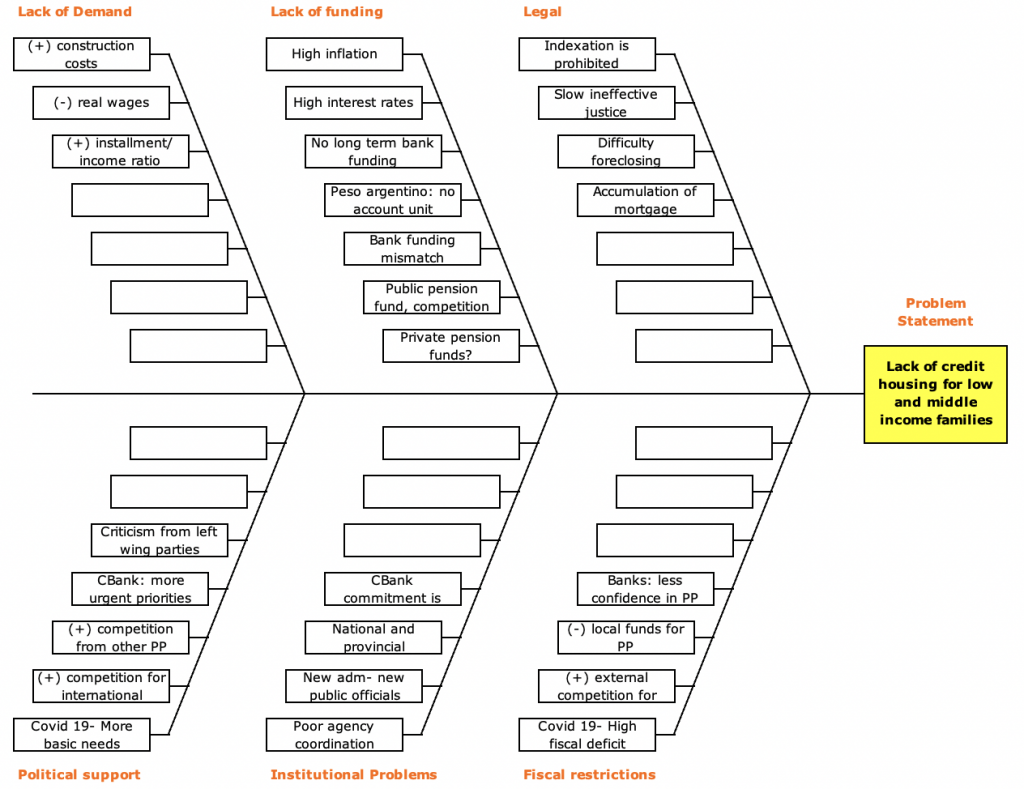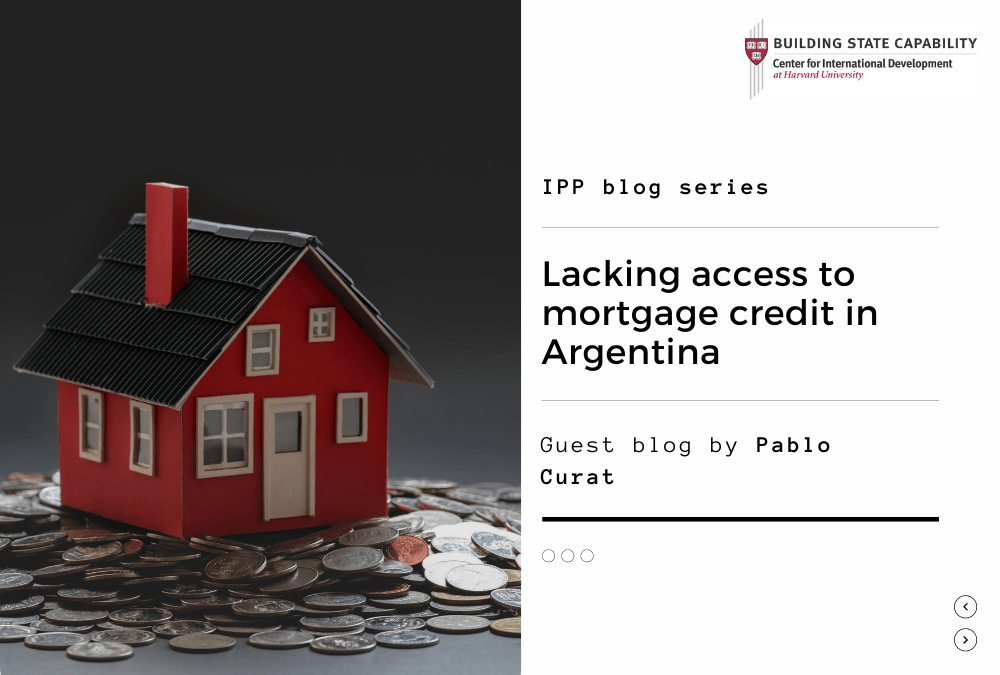Guest blog by Pablo Curat
- What were your expectations of IPP Online when you signed up?
I am an economist and for 30 years I have worked in the regulation and supervision of financial, microfinance and fintech entities and in design and implementation of development policies related to access to financing for small and micro-enterprises, agricultural producers, etc. Either as part of the public sector (I was Director of the Central Bank in Argentina) or collaborating as a private consultant.
I had always done it my way, without a specific methodology, contributing my professional capacity and trying to adapt to the different contexts and political and economic priorities and interacting proactively with actors from the public and private sectors.
The need for more tools attracted me from the first moment to enroll in the IPP course 1) By the name itself, it was certainly not a theoretical but a practical course, focused on implementation, excellent news…. 2) However, I had a great uncertainty: the cultural, social, economic and political contexts in the countries are so varied. How can you offer an IPP course that is useful to practitioners around the world? Is it the same to implement public policy in the USA as Argentina or Ethiopia? So I thought there were only two alternatives: the IPP-HKS course was a success or it would be one more academic course, perhaps full of generalities.
My expectations were to incorporate knowledge, methodologies and experiences that would allow me to be more effective and efficient in my work as a policymaker or as an external consultant.
- What were some key learnings from this course?
• IPP is a JOURNEY: I found the picture very clear that IPP is like taking a trip from St Louis to Los Angeles in 1850. It´s very difficult and requires a lot of work. There is no path, the path is made by walking. There are very few trails, you need a well-selected team with different skills, different guides are needed for each stage, there are storms, there are viruses and diseases. There are changes of authorizers and donors, budget cuts, little time, there is a lot of physical and emotional fatigue, etc.
• IPP is HARD, implies a lot of work. “Most times you don’t solve complex problems, you just manage them”.
• It is IMPOSSIBLE to anticipate all IPP problems and challenges. You need to deconstruct the problem into small problems and get started. The fishbone diagram is a great instrument; it’s the MAP of the IPP journey. Simple, visual, accessible, easy to understand, an instrument that is not static, it has to be modified as you progress.
• If IPP is a journey, in my opinion PDIA is the best vehicle. PDIA requires humility, openness, commitment and perseverance.
• If PDIA is the vehicle, I think the team leader is the driver, political authorization is the ignition key, people are the engine and motivation/enthusiasm is the gas.
• The action learning check-in spreadsheet is a great tool, as necessary as the car service.
- What implementation challenge are you working on?
The public problem defined by policy makers at the national level is the lack of access to mortgage credit for family housing. This is a deficit suffered by 3 million people in Argentina.
Credit is a key element in democratizing access to family housing. In an economy without housing credit only the richest have access to their own house.
In these days the COVID-19 pandemic has put on the table the importance of quickly closing the housing deficit also for health reasons. The greatest number of infections has occurred in poor housing. The context of 2020 requires a quick response to this structural problem of Argentine society. - What progress did you make or what insights did you have about your problem through this process?

• Through the Fishbone Diagram (FD) I was able to have a better definition of the problem and was able to deconstruct it into small problems (see the graph above).
• Spending time defining the problem helped me focus and find realistic and innovative solutions more easily. Henry Ford used to say: “thinking is the most difficult job, perhaps that is why there are very few people who practice it.” It is also true in IPP.
• Learnings. The political authorization of the housing project has been suspended because COVID-19 and its impact in public revenues. I have only been able to advance in the analysis of different technical alternatives.
• Leads: I had the opportunity to meet and talk to Minister of Housing, Central Bank Director, CNV President and CNV Director and two external consultants.
• Current situation: Due to the effects of COVID-19, the project as originally envisioned is unlikely to be viable today. I have proposed the alternative of starting a pilot case, at the provincial or municipal level and requiring less fiscal resources.
- What motivated you and how might this approach change (or not change) the way you tackle problems in the future.
In my position and with more than 30 years of public and private professional experience, it is very common to have the “pressure of the senior consultant”: to think that one must have an answer for everything. Believe that your own knowledge, your own experience and the knowledge of international best practices are the only way to go. Thanks to the IPP course I have discovered that it is false and unreal; now I focus on correctly identifying the problem, deconstructing it into small problems, asking more questions and listening more, being more open to my team, to the implementers, beneficiaries and users of the public policy. They know market failures and government failures better than most economists. I’m losing the fear of failing and I believe in learning by failing. I am understanding the importance of being humble, to rely less on my own knowledge and experience, and more confidence in the wisdom and experience of users, beneficiaries, and implementers in the field. If the goal is very difficult, then it could be easy to fail, but in the face of partial failure the greatest risk is to be paralyzed, lower your arms and give up. Action learning is testing, learning, adapting, and testing again. When the challenges are great and uncertain that is the only way to success, even if the results are not achieved or it takes longer to achieve.
- How are you using or will you use what you have learned in this course?
As auxiliary tools of PDIA, the ones that have been most useful to me and that I am already using are:
• The Fishbone Diagram. I think it´s a simple, visual, easy to understand tool!
• The 5 Whys to Deconstruct a Problem.
• The Action Learning Check-In Spreadsheet. A great tool to monitor the IPP process: What did you do? What did you achieve? What did you learn? What´s next?
• The 4P Leadership: perception, projection, process and people.
• The Trust Triangle: authenticity, logic and empathy.
• The 4 Levels of Delegation.
• The 4 Steps of Team Working: forming, storming, norming and performing!
• The 2 Ways to Create the Conditions for Learning.
• Difficult Dialogues and 4 Tactical Ways to Managing Emotions.
- Do you have any words of wisdom to share with fellow PDIA practitioners around the world?
IPP is hard and requires a lot of work, energy, resources and political authorization. PDIA is a great instrument and useful for IPP and for life. Be prudent, select those battles that are worth fighting, share the weight and the risks of IPP with others and you will avoid being an “easy target”. Be humble, be open to other ideas, be strong, try to be focused and to stay in the middle: neither euphoric when IPP goes well, nor depressed when it gets stuck.
This is a blog series written by the alumni of the Implementing Public Policy Executive Education Program at the Harvard Kennedy School. Participants successfully completed this 6-month online learning course in December 2020. These are their learning journey stories.
